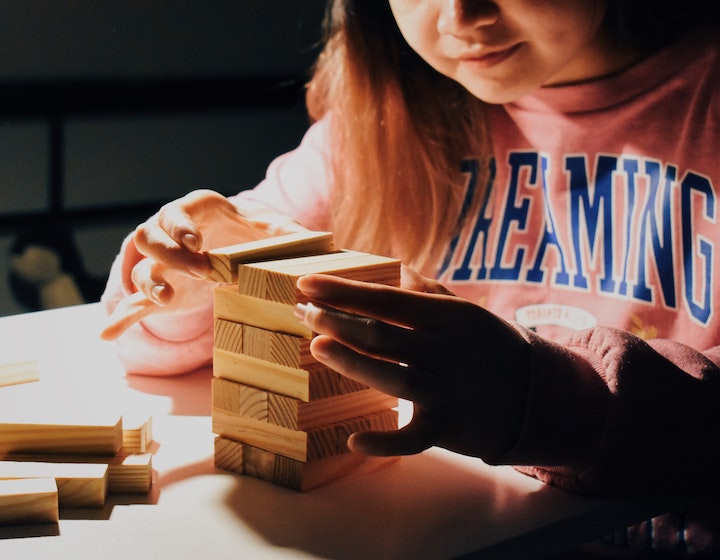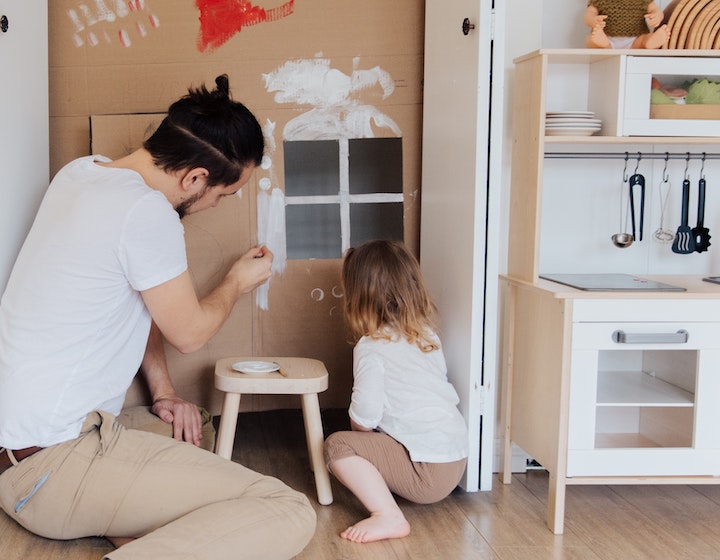
 Post Category - ParentingParenting
Post Category - ParentingParenting Post Category - Health & WellnessHealth & Wellness - Post Category - WellnessWellness
Post Category - Health & WellnessHealth & Wellness - Post Category - WellnessWellnessThe joy of living slower and adopting a new calendar outlook.
I ushered in the new year as I had always typically done: promising myself never to indulge in food again, stashing away red and green baubles of peculiar shapes, and preparing for work and school schedules to return to normal. But my post-holiday stupor immediately cleared when I checked my calendar app. Most activities were still marked To Be Confirmed, as if suspended in a frozen animated state.
Last year, the spontaneous cancellation of classes and activities as a result of pandemic restrictions felt like a personal affront. It felt as if my children’s carefully crafted schedule was being used almost as target practice. Take aim at ballet class – fire! Now, swim training – fire! With my calendar riddled with bullet holes, I was forced to learn the value of living a slower, less congested, less social life. I eventually found beauty in the pace of this new lifestyle, a rhythm I intend to extend to this year. I believe we learnt a difficult but valuable lesson about the importance of simplifying and streamlining our overwhelming schedules.
Read more: Expert Advice: How Will Social Distancing Affect My Child?

Jenga Schedules
Previously, our family schedule reflected a masterful Jenga tower tenuously held together by the unanimous cooperation of clear traffic conditions, dry weather and a car with a full tank of gas. The Jenga tower began to wobble, for instance, if I found myself stuck behind a lumbering lorry. This meant a delayed drop off at football training for my daughter, which in turn meant my son did not receive his swim gear on time. That resulted in my youngest waiting, alone and forlorn, in the Taekwondo classroom. The children had one, if not two, extra-curricular classes each day. There was almost no margin for error, and the tower seemed one wooden block away from a calamitous topple.
While evaluating the benefits of classes, we may realise that many offer diminishing marginal returns, especially when additional factors like location are considered. When my oldest was a toddler, she attended a Chinese school located almost an hour away from my home. To get there on time, she had to forgo her nap and eat lunch in the car. She would arrive at school cranky, hungry and in no mood to sing about twinkly stars and two little tigers. Diminishing at a more rapid pace was my sanity while I chauffeured her during traffic.
After a few months, I had her drop out of school. I would not condone this action if your child is, say, twelve years old, but at two years old, I couldn’t justify the hours spent sitting in my car. And for her? She was delighted for reinstated naps and eating lunch at the kitchen table!
Read more: Raising Resilient Hong Kong Kids By Teaching Them Happiness

Why Do We Overschedule Our Children?
Much of the reason is simple: we love our children and want to offer them new opportunities. When it comes to our kids, it’s difficult to say no when we can say yes. I used to delight in jigsaw piecing together my children’s schedules, believing this was what “good” parents did for their kids. My Calendar app enamoured me, displaying distinct colour-coded boxes, each child’s activity stacked one on top of the other with no margin in between. I frequently opened it on my phone and used it the way others use social media as a sedative – scrolling through it mindlessly and addictively. To heighten the feelings of satisfaction, I would often hand write our family timetable, savouring the feeling of decapitating words by crossing items off the schedule. Sometimes, I would even write an already completed activity, just to guillotine it.
Thankfully before I was institutionalised to the loony bin, pandemic restrictions forced us to start living slower. Any semblance of an orderly schedule became untenable. During the restrictive periods, I began to question the logic of having extracurricular classes, the value of being busy for busyness sake, and why as parents we scheduled (or over-scheduled) our toddlers and children.
Does It Help?
Besides wanting to give our children every opportunity, often, we fear the future and want to prepare our children for optionality. If you are a parent of a young child, your child’s career may seem like aeons away. But if we project far into the future, “a good job” is vaguely, or vastly, what you want for your child. So you start balancing the probability of possible scenarios. If the future is Chinese, your child has Mandarin. Is the future technology? You’ll ensure your child has exposure to STEM. If success is determined by university entrance exams, you’ll make sure your child will get as much SAT prep or mock exams as they want (or don’t want).
In my research, I came across a radical figure. A report published by Dell Technologies and authored by the Institute For The Future (IFTF) states that 85% of the jobs existing in 2030 haven’t been invented yet. This figure is inflated, in my humble opinion. But it illustrates an excellent point: we simply don’t know what career options our children will have as adults. Now back to the present – how much of our over-scheduling is a reaction to our fears about the future and the need for a hedge?
Read more: The Benefits Of Boredom For Children And How You Can Help

A New Calendar Outlook
Which begs the question: which activities should our children pursue and which ones to discard? Each family and child is different so I couldn’t say. But might I share a new calendar outlook as we begin this year, inspired by the book “7 Habits of Highly Effective Individuals” by Stephen Covey? Start with an empty weekly schedule and consider putting in the big rocks first. The big rocks are your family’s priorities. The key, says Covey, is not to prioritise what is on your schedule, but to schedule your priorities.
My family has three big rocks. Immoveable boulders that act as pillars of our weekly schedule:
- One family meal – for us, this is Saturday dinner
- 1 to 2 hours of quality parent-child time. This can be over a meal, an activity, or even over Zoom. The emphasis is on shared enjoyment for both parent and child.
- One unscheduled afternoon a week. This may be difficult to uphold practically, but the spirit is to create a margin.
After the big rocks come the pebbles, or activities. Some parents may worry that living a slow life might impact their children’s learning. To decide what activities to add and which to expunge, I recommend a non-parenting book that has helped me immensely with parenting – Range by David Epstein. Epstein examined the learning environment that led to the success of a sample of athletes, artists, scientists and musicians. He concluded that access to a flexible, unhurried, nurturing and diverse environment is more conducive to success than early specialisation, for most fields. To quote him: “Mental meandering and personal experimentation are sources of power.” He believes generalists tend to have multiple interests, training their minds “to dance across disciplines.” In short, head starts are overrated. My takeaway is to observe my child’s leanings and let his or her interests shape the schedule.
Read more: Parenting Tips: How To Identify Your Child’s Talent And Hone It

New Year’s Redirection: Slow Living
A new year usually brings a renewed vigour to do better, to do more, to do faster. But after my hard-earned lesson from last year, I learned the best thing to do for my family’s schedule is to do slower, do thoughtfully and do deliberately. Instead of creating even more time obligations for my children, and filling the white spaces with stuff to do, I’m considering a gentler new year’s redirection.
In the course of my writing, I’ve revisited the teachings of one of my favourite Princeton professors, John McPhee. In one lesson he teaches the strength of omission: the valuable white space left between chapters or segments within a book, space where there is no text. This is the place where the reader can articulate his or her own conclusions, make connections within his mind, and ruminate and digest.
In the same way, consider your family’s schedule this coming year. How much white space are you leaving in your child’s schedule? And how much space are you protecting in your own calendar? Perhaps pandemic restrictions can serve as a catalyst for slow living and will force a reset in our busy schedules. During this reset, we may rediscover the value in what is most valuable: family, health and a handful of genuine friendships. And only then, do we consider when to fit in karate class, Kumon and Kaplan.
Read more: What 2020 Has Taught Us: 6 Sassy Mamas And Papas Reflect
 View All
View All











 View All
View All





 View All
View All


 View All
View All














